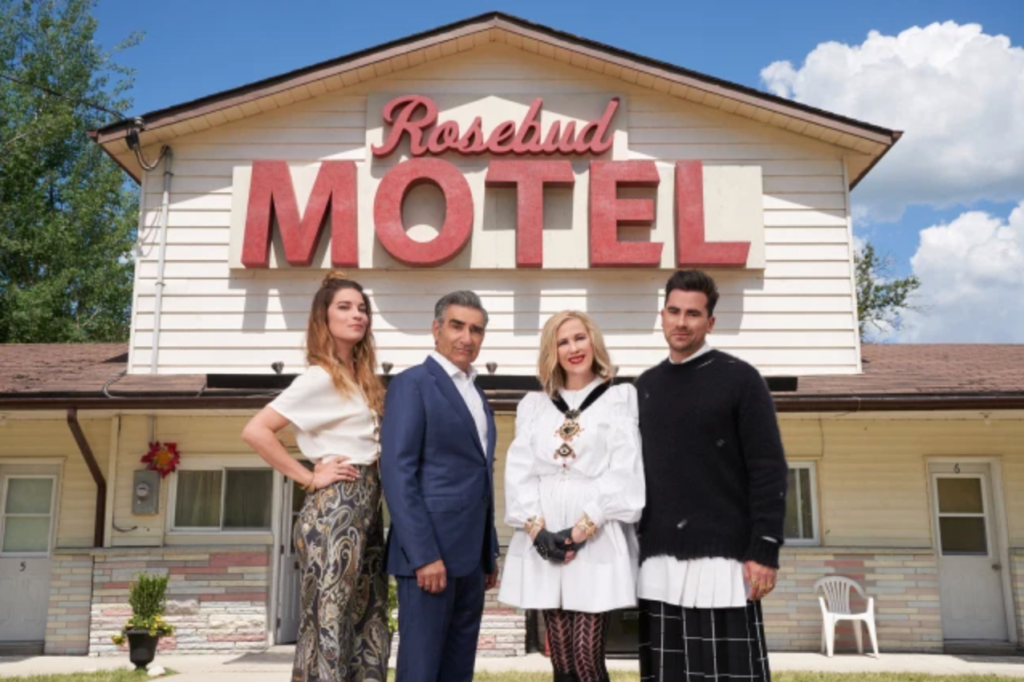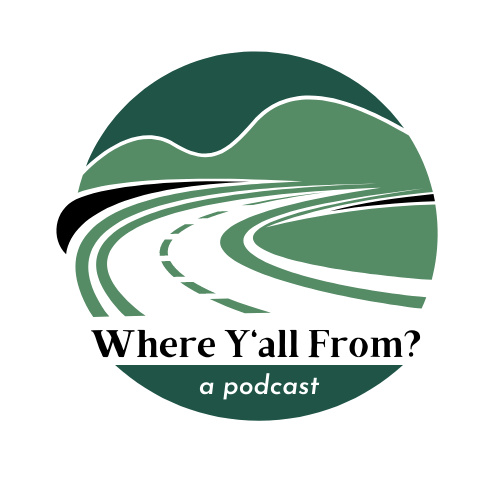 When I was a kid, my family used to spend Thanksgivings on the farm. The idyllic, iconic American experience. Mamaw would spend days shopping and chopping, and woke before dawn to start the turkey. She always had everyone's favorite pie. Dinner would involve, among other things, three different pans of stuffing: one with everything; one with no onions; one with no giblets. Plus the copious amount of sides including deviled eggs in a giant Tupperware container–because if you don’t have deviled eggs, is it really even Thanksgiving in Kentucky? All of it would somehow fit on the table that also seated 6 adults. (The 4 kids were relegated to a card table in the den, of course). As that turkey roasted to the perfection that only childhood memory can muster, I was outside with my cousins, playing on the tire swing and jumping in hay bales. The barn smelled like tobacco and Novembers were warm. This is not a Norman Rockwell imprint on my psyche. It was actual life. You don’t know when you’re having the last one of those before life happens and people grow up, and everybody gets jobs and car payments and a set of in-laws. But at some point, all those dominoes started falling. Thanksgiving migrated to my aunt’s house in Georgia, and I married into a very large Catholic family where Thanksgiving was less an exercise in finding space for the deviled egg and more a game of Twister to get everyone seated. Then I moved. To Phoenix. We lived in three different places in 7 years there, transient in they way of Gen Xers in general, and Arizona residents specifically. We had good friends from home living in Southern California. When you’re a Kentuckian living in diaspora, the 5-hour plus drive across the desert seems like nothing at all, and so the Cali-Kentucky contingent would come to Phoenix to spend Thanksgiving with us. Those years involved the gradual introduction of babies (ours and theirs) and friends’ husbands, and an ever-expanding table of mostly vegetarian fare. The church I was serving at the time always had a big Thanksgiving meal the Sunday before, which meant turkey with an abundance of jello-dishes and store bought salads because– THIS JUST IN– Arizona people don’t cook like your Kentucky Mamaw. But they have their own virtues. For instance, those were the years I learned to put green chiles in everything. Seriously, corn pudding, cheese grits… whatever, it will change your life. Somehow, even though ministry life means that holidays are the worst possible time to go ‘home,’ that desert was filled with all the goodness of family and belonging that I could ask for. Maybe it’s because there was so much love in the scrappy little church that made a pastor of me. Maybe it’s because my friends and chosen family were willing to drive across the desert just to hold my babies and enjoy pie-for-breakfast-Friday (my favorite, if self-appointed holiday). Or maybe it’s because home is not a place you go, but something you take with you. During our years in Kansas City, Thanksgiving was a pieced together thing. Some years we would go to a friend's house rather than burning up the road to Kentucky; one year, I made a midnight run to the airport, in the snow, to pick up my mom. Sometimes we traveled, sometimes we set the table. All told, in our first 15 years of marriage, my husband and I lived in 3 states: 3 Cities, 3 timezones, and (I’ve lost count but roughly) 9 different houses and apartments. There were times I felt untethered; years I wished I could transport myself to a Rockwell-esque farm scene and whatever ‘home’ means when you’re missing it; times I wished that we had “a holiday tradition” that was just what we did every year, no matter what, and we didn't have so much stuff to figure out. But that sense of lack and longing isn’t what I remember. I remember holidays from those transient years as enforced sabbath time. A few days to breathe in the goodness of our current life situation, wherever that happened to be, and enjoy it with whatever friends and family we could scrape together. Wherever we were, and whoever was there, was exactly who and what we needed at the time. We are back in Kentucky now, and like the rest of the country, heading into our 2nd pandemic Thanksgiving. So on the one hand, we have plans for about 3 different gatherings to ensure that we hit all sides of the family. On the other hand, we've got a kid at home who is technically COVID positive (though asymptomatic, thankfully) who is supposed to quarantine through Thanksgiving day. We'll do another round of tests on Wednesday and see what's what. But the past week has been a reminder that it's best to stay flexible and know that 'plans' are rarely more than good intentions. And that even our best traditions will give way to real life. The holidays came around last year at the height of the pandemic, before a vaccine was available. All experts advised that Americans forego their usual family gatherings and celebrate at home... but some folks just couldn't get their heads around it. While many sacrificed and planned family Zoom calls and Googled how to make turkey for 4, or 2, or 1... many, many others went on with holidays-as-usual, having no frame of reference for how one might just... not. And we had a massive January COVID spike to show for it. And yes, the holidays last year were kind of a bummer... But I was very mindful that the art of being unattached to tradition served us well through that time. And it continues to serve us still. There is a certain resilience that comes with having moved and changed your life a lot over the years, a bloom-where-you're-planted flexibility that embraces your current location, both literal and figurative. And one does not have to make geographical moves to cultivate such resilience. Anyone who has ever scraped together a sense of community from a hodgepodge assortment of people in close proximity will tell you the same. When your tradition is no tradition, you make it work. You give thanks for where you are. Like many of yours, our family table will be missing a loved one this year. The grief is palpable. But there is also real Thanksgiving for the life that was, for life that remains, and for those who are still with us to celebrate. Nothing is ever the same as it was when we were kids. In fact, things are rarely the same as they were just a year ago. But I know that my truest understanding of gratitude has grown out of the years when nothing seemed normal or usual... but when I could still look around and see how blessed I was by whoever happened to be in proximity. Because it's really not about holidays at all, but about finding home. And home, it turns out, is portable. Like the Derby pie I took to Thanksgiving potlucks in both Arizona and Kansas– because if you can believe it, there are folks living in those distant lands who have never thought to put bourbon and chocolate chips in their pecan pie. Home can happen at any table where you happen to be, in any season, in any timezone. Maybe home is just where your pie is.
1 Comment
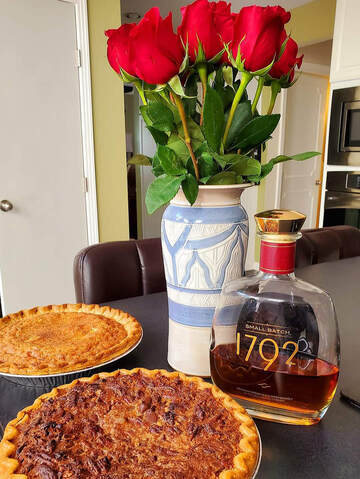 Yesterday I grabbed the last package of pecans from the baking aisle in Kroger. Clearly all of Louisville is doing what I’m doing today--baking Derby pies. Shoot, I can’t say that. The official name is trademarked, so let’s just say, I am making chocolate pecan pie (or walnut, if you fancy), using a heavy hand with the bourbon. There may be some on the side for sipping. Of course, when I say “all of Louisville,” I mean those in my fair city who are not actually going to Churchill Downs for the race. My confession is, I’ve never been to the track ON Derby Day. But honestly, if you aren’t going to pay a 5-digit ticket price for a luxury box, you are just going to stand in the muddy infield with all the drunk frat guys who don’t know the words to My Old Kentucky Home. No, thank you. I prefer to enjoy my pie with a few close friends, the NBC Sports’ view of the whole track, and bourbon refills that you don’t have to wait in line for. You don’t have to be at the track to enjoy Derby Day. Actually-- you don’t even have to be in Kentucky to enjoy Derby Day. I can attest to this after years of having lived “elsewhere,” marking the day as “National Homesick Kentuckian” day--crying into my bourbon even as we sang “weep no more, my lady,” sharing pie with whomever was around, and trying to help my friends and neighbors in Phoenix, then Kansas City, understand what this whole thing was about. Because if you know, you know, but if you DON’T know… well, it just seems like a big lot of fuss for a horse race. In those away years, I always tried to share the experience with the people in my proximity as best I could. I would say that my transplanted traditions ‘took’ better in some locales than they did in others… But everywhere, everybody loved pie. You can’t argue with the power of pie. In fact, I have made and shared Derby Pie in so many other places, with so many other gatherings that now, this thing that used to make me homesick for Kentucky now makes me homesick for other places and people. How is that possible? This is Kentucky’s THING! Kentucky’s day. And yet-- anyplace I’ve taken this pie is also home. I guess home is where your pie is. This time last year, COVID-19 meant no Derby… Churchill Downs, like every other public place, was shut down tight and silent. The race was postponed until September when, in a truly spooky and post-apocalyptic feeling broadcast, the horses ran with no spectators. No juleps, no fancy hats, no drunken frat guys singing the wrong words loudly…just the sound of hooves on dirt. It was as though the whole pandemic had been distilled into a single, empty, two minute event. We gathered on our patio with a small group of friends, the T.V. having been moved outside for a socially-distanced watch party. As the opening strains of Stephen Foster carried across the airwaves from that impossibly empty place, my daughter said, “are you CRYING?” like it was weird or something to be crying over a horse race. I said “every Kentuckian everywhere is crying right now. Believe me.” If you know, you know. But if you don’t know… well, it just seems like a big lot of fuss for a horse race. Watching the race from just a few miles away that day felt a lot like watching it from Arizona. So close, but so far… So removed from the place itself, but so connected to every other homesick Kentuckian in the world, every other piece of traveling pie... I will watch again today-- on a friend's patio, from just a few miles away. While Churchill Downs will be at about half capacity, there will be spectators. But I don't feel the need to be there in person. It is possible to feel homesick even when you are at home. It is possible to feel connected to home, even when you are nowhere near it in proximity. And it is not just possible, but highly probable, that a certain food, or song, or sound of hooves-on-turf, can transport you instantly from home to elsewhere, and back again. Because home is not so much a place as a longing; a thing that you take with you everywhere and, hopefully, share with anyone who happens to be in your orbit. Home is where your pie is. 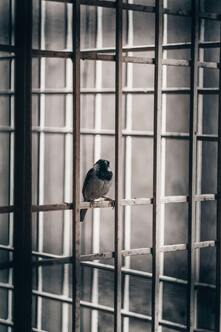 Tonight I pray for the most hated man in America. Not that he be comforted. Not that he find peace. But that he might know a thing we call Transformation. Because if there might ever be a moment of “Dear God, what have I done,” If there might be a shock of horror At glancing in the mirror, A slight shudder of “Whose blood is this on my hands?” Then maybe there can be this thing that we sometimes call Redemption. Atonement. Tonight I pray for the most hated man, But also For the ones who handed him a gun. For a nation that raised him to fear brown people, Grew him up to worship the idol of his own whiteness, And then handed him a gun again, saying “Here, go protect us From that one over there, With his hands pinned behind him. Go shield us from that man, Calling out for his mother.” Let there be a collective sigh tonight of Lord hear our prayer And what is it that we have done? And may we someday fully account for the number of souls, Beloveds, Whose blood runs in rivers down city streets In all this shining, sinful land. Tonight I will pray for the most hated man, For all the terror that the bars won’t keep out, For all the rage that the walls hold in. I pray Not for his comfort. Not for his peace. But that he might know a thing that we call Transformation-- even if we little know What it means. And I pray that he might, For the rest of his captive days, Speak with reverence the name of the one Whose breath he stopped On bended knee. “Um, it’s my turn to Take a Selfish.” “No, David. You selfished last time.” This is one of my favorite sibling moments on Schitt’s Creek, and it comes early in the show when we are still learning that David and Alexis do, for all their dysfunction, have a unique sibling bond. In this moment, you a) hear them speak in sib-code, which only people who have been close for many years can do, and b) get a little more of their backstory as they argue about who last took a selfish, and for what purpose. Part of the beauty of a well-written show is that they don’t have to stop here and explain (for the viewers’ benefit) what it means to “take a selfish.” Even if we don’t have that particular shorthand for it, hopefully we are lucky enough to have a few close relationships-- a sibling, a spouse, a lifelong friend--with whom we have such a history… meaning that we have the space to, occasionally, take a selfish. I don't know about y'all, but I feel like I’ve been taking a selfish for a solid year. As the world (or at least our privileged, nearly-vaccinated corner of it) eases back into some semblance of a new normal, I’ve heard a lot of people refer to a “lost year.” A year with no school, no family gatherings, no travel...maybe little work, or few interactions with those outside the home. I respect the sentiment, but I don’t really think of the year as ‘lost.’ Time went on, the seasons changed, and life continued to happen, even if it wasn’t what we were used to. But I am starting to think of it as a selfish year. At least, for me. For many people, this season has been anything but a selfish one. For healthcare workers, it has been the most demanding time imaginable. For those who are caregivers for elderly or ill family members, it has taken everything they’ve had to give. Educators and other school staff, who have scrambled to keep reaching kids amid unthinkable challenges and constantly changing protocols-- these are the least selfish folks I know. But me? I feel like I’ve spent a year nesting in, focused entirely on myself and my own family. Granted, in a global pandemic, that’s what we’re supposed to do-- survive and care for the people in our bubble. If we are not frontline workers or caregivers, our best contribution throughout this ordeal has been to stay home; to keep our family’s germs out of the mix so that others could do what they needed to do without added risk of exposure, and without us taking up space in a crowded hospital. But other than keeping my own family safe, and contributing financially to some folks I thought were doing good work… well, it has been a selfish year. Even knowing that this was not entirely a bad thing (and not entirely avoidable), it seems like now it is going to be difficult-- or at least, take some intention--to break out of this mindset. I’ve always tried to live as an outwardly focused person. But a year of being physically grounded has turned me inward, and I suspect I’m not the only one. How do we go back to living out there in a bigger world? Making room for other people? Reaching out instead of huddling in? My hunch is, it will not be a switch that we can flip by sheer will. “I CALL AN UNSELFISH!” Nope. Didn’t work. I don’t know, fam. I don’t know how we break out of the fortresses we have built from necessity. All I can say is, if you have spent this season of quarantine out there serving others, thank you. And if you have spent it at home, doing your part to dampen the curve, then thank you for that, too. My hope is that whatever comes next will be informed by the spirit in which we have done both things-- that the communities we build (or rebuild) now will have the foundation of all our best, unselfish intentions. One of the things that has brought me joy in this season has been watching Schitt’s Creek (okay, twice) and finally getting what all of the fuss is about. Initially, I couldn’t get into it. Like many others, I said “These characters are terrible people! I don’t care what happens to them!” If you are still in that place, reader, let me tell you-- it gets better. They are, at the outset, shallow and utterly selfish, yet. They are a family that has built an inwardly focused world because wealth and privilege has allowed them to do so. In those early episodes, they don’t know how to connect with each other, let alone this strange little town where they find themselves sequestered. But--pardon the small spoiler, this is important--it story of the Rose family is ultimately a story of transformation. The journey of people who experience a crisis of loss as a moment to shift their focus and broaden their world; to realize that they are, in fact, part of a wider community, whether they initially like it or not; that they have responsibility to take part in the world around them and, a foreign concept to them, their neighbors actually care about them too. Part of why the first season is so hard to watch is because they are resisting this reality in which they belong to other people. It is a selfish year. But in the end, they have all grown into people you can relate to; brilliantly flawed characters who have learned how to meaningfully participate in the world around them. Perhaps it can happen that way.  It's 5pm. You've spent the past 8 to 10 hours of your life on a computer. Possibly multiple computers. You've oscillated between screens and tabs; you've written documents, powered through hours-long Zoom calls, helped your kids with "new math" and any number of technical difficulties with remote learning, answered a few texts, read and written more emails than you care to count; and/or stared at a spreadsheet until the little lines start to dance and possibly talk to you. Is it really only 5:00?? If it is, and if you are calling it a day, then good job. Many of us working from home these days-- or even working at a real live actual office-- have trouble punching out and logging off at a designated hour. With these strange days of multi-tasking work, school and household management--often from the same space--the lines between 'work' and 'not work' hours blur easily. You may step away at a certain time but... well, if your office is in your house, you are really still there, aren't you? Regardless of your live/work situation, the bottom line is that most of us are spending many, many hours looking at screens on any given day. And often long past 5pm. We are looking at screens to pay the bills and order groceries online. Screens dominate our entertainment and social lives too- interactive video games, virtual happy hour with friends, and of course, the binge watching. Netflix, Prime, Hulu, Peacock...wherever you choose your escapist plot lines. Which is to say: many of us are in full-on sensory overload mode a whole lot of the time. And in such a state, the gift of being able to sit and LISTEN to something without having to LOOK at something is wonderfully life-giving and possibly even healing. Whether it is music, news radio, or an audiobook, the sound nurtures another part of the brain. We learn something, we spark our creative energy (who knew that was still there??), we might even find ourselves feeling rested and renewed. Maybe this is why podcasts have taken off as a new favorite medium--we are tired of looking at stuff. We just want to listen. All that said, dear reader, thanks for hanging in and reading this far, getting through all these WORDS on a screen to get around to what I'm really here to tell you: today, we are launching a new podcast! And by "we," I mean me and my little brother. Chris and I have always talked about how much we'd love to work in radio, or how great it would be to have a show. One day recently, the pieces just started coming together, and even though it all happened quickly, this first episode feels like a thing we've been planning for a long time. So with that, let me introduce you to the pilot episode: Most folks have a small town somewhere in their past. And for many of us: it’s complicated. “Where Y’all From” explores the often fraught relationship between where we’re from and who we are. In this pilot episode, brother-sister cohosts Chris Smallwood and Erin Wathen introduce their hometown of London, Kentucky, sharing thoughts on "global chicken" (also known as KFC), local flavor, and the funky Americana that makes all of our small towns feel like home. In future episodes, we will interview guests -- mostly, folks who are from small towns but no longer live there anymore. We will ask them about what foods and funky facts make their hometown unique; we will talk about how they place they come from impacts who they are and what they do; and we will talk about the complicated tensions of being homesick for a place where you don't really want to live...or maybe you do, but you can't. Our hope is that time spent listening to us, and our guests, will feel like a retreat from routine and other demands. We want you to feel like you've been someplace. We hope to leave you feeling inspired. After hearing other folks talk about the places they're from, you might even come away feeling a little bit more connected to your own community, your own story, your own sense of place in the world. So with that very long introduction, may we present, Episode 1: Global Chicken. 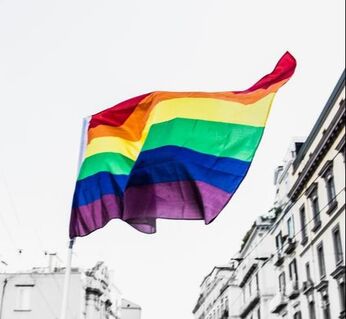 The world is not black and white. The world is not black and white. On this day in 1973, the American Psychiatric Association declared that homosexuality was not a disease. As with so many moments of progress, that seems both a really long time ago, and not that long at all. Today I’m leaning more on the side of ‘not that long at all,’ because here we still are, watching politicians hash it out over the full humanity of our friends, neighbors, brothers and sisters who do not identify as purely cisgender, heterosexual and binary. It’s confounding that some of our elected officials are digging in their heels to block LGBTQ rights when we are in the middle of a global pandemic and over half a million Americans have died; we are staving off an economic disaster; and the environment is sending red alerts, by way of deadly winter storms in Texas, that we must change our ways… This squabble over equality is what they want to hang their hats on? But here we are. The Equality Act, passed by the House this week, will now go to the Senate for a vote. The party line for those who oppose it is predictable: they are worried about religious freedom. The road from ‘gay rights’ to ‘religious freedom’ is a pretty twisted but also familiar path. Their bottom line is that businesses should not have to cater to a “lifestyle” to which they are opposed. So, just for instance, a conservative florist should not have to decorate a gay wedding. Or, to go one further-- a religious school should be able to fire a teacher if they find out he has a same sex partner, etc. But we can call b.s. on that action because what they are really, blatantly trying to do is protect the rights of an institution to discriminate. It has nothing to do with religion, nor does it have a thing to do with freedom. The First Amendment was intended to protect religion from government-- not to impose religion ON governance. This is a fine distinction that sends many of our ideological disputes into a spiral, ending with meaningful policy just circling the drain. But protecting the rights of LGBTQ folks in no way impedes your right to worship or practice your faith in private life. You can go to any church you choose, and do or say whatever you please there. In your own home, pray however you want. Even in public spaces-- go for it. Nobody can stop you from taking a bullhorn and loudly proclaiming your brand of gospel from the street corner next to the adult entertainment complex or the abortion clinic. Rage on, I guess. This is America. But if you operate a business, then you are operating in another realm of public life. You are functioning as part of the community--and there are certain covenants that bind you as a neighbor, as part of a wider economy, beyond the confines of your religious life. Embody those Christian values however you want in terms of your behavior, or what words and symbols you might display in your workspace. But how you function as an enterprise no longer falls under the purview of ‘religious freedom.’ Don’t want to hire a gay person or decorate a gay wedding? Perhaps it’s time to find a new line of work. The year is 2021. What has become clear to me as we hash these same arguments out, again and again, is this: spirituality itself is a lot like sexuality. There is a spectrum. And it is becoming increasingly acceptable to come out as nonbinary in terms of religious belief and practice. You don’t necessarily “believe or not believe.” You don’t have to be all in or all out. You are never just a saint or a sinner. You can hold doubt and devotion in the same spaces. The truly faithful do it all the time. The evolution towards nonbinary thinking is a big part of maturity in general, and faith development specifically. I’m reading Richard Rohr’s The Naked Now, and this is his entire premise--we are only surface living as long as we see the world in binary terms. Years of study in the field of faith development reveal the same truth. The ability to weigh critical thinking alongside our religious beliefs is essential. Otherwise, we are not really practicing faith, we are just being superstitious. Clearly, many of our leaders are still stuck in the infant stages of both critical thought and faith development. But my bigger concern is that so are our institutions. Both religious and the secular, church and state, remain stuck in this early-stage perspective that all things must be either/or. Like a toddler just developing spatial awareness and object permanence- did that toy just go behind your back, or did it disappear?? Here lies the very heart of so much discord. I hold out hope that the Senate will pass a vote for movement and change- a shift towards growth mindset and nonbinary thinking in general, and more to the point, an affirmation of the full freedom and dignity of LGBTQ folks. Even if the vote doesn’t go that way, we can keep moving in that general direction. We continue to evolve in both faith and critical perspective, moving towards not just a more equitable world, but a healthier, more productive way of living in it. I want our LGBTQ fam whose lives will be affected by this vote either way to know that, even if this measure doesn’t pass, we have your backs. That we are even still fighting about this is absurd, and I am sorry for it, truly. If we continue to be held hostage by regressive politics (and religion), please know that we will keep trying to find a better way. In the meantime, whatever comes, take comfort in this truth: the world is not a binary place. Very few things are entirely left or right, right or wrong, light or dark. Clearly, this is true of our institutions, both the faith-based and the secular. And the longer our systems of religion and government try to function in absolutes that don’t exist, the weaker they become. I’m never sure if that’s the good news or the bad news, but I do know this: embracing the beauty of the spectrum is the more life-giving way. Any existing structures that fail to see this will eventually crumble under the weight of their own rigidity. And when they do-- maybe what’s left is a better foundation. Colorful, resilient, free. Call your Senators and invite them to join us in this century. 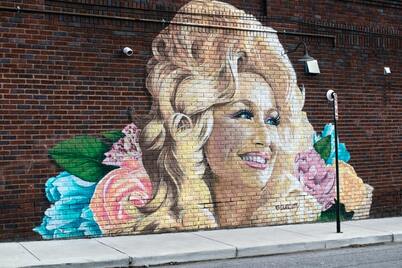 We already adored her. Of course we did. As a musician, she is legendary. An institution. I've been in that room in the house in Dollywood where they have all her awards, and it is too much for the eye to take in. And you just KNOW she's got a few favorites at home on the mantle too. Her body of work speaks for itself, accolades aside. There is a Dolly song for everything, and we know every word. But the music is not the only reason she is so beloved. There is an incomparable something about her that has always sparkled, always made you feel like you KNEW her, like you could run into her at the grocery store and she'd give you a hug. (Let me stop you now if you feel compelled to disavow me of this particular daydream). But at this particular moment in history, heavy and chaotic as it is, Dolly has emerged as something much more than iconic artistsand genuinely nice person. She is a unifying figure, one who has managed to bring hope, joy, and a kind of aspirational resilience to the present upheaval. Jad Abumrad explored this phenomenon in his podcast, Dolly Parton's America, even before the pandemic. If you have not already listened to every single delightful episode of this series, then congratulations: your weekend is planned! A philanthropist to the Nth degree, she has long provided scholarships for any kid from her hometown who wants to go to college. Fiercely committed to literacy, she has donated over 130 million books to children around the world. And just recently, she made a many-zeroes contribution to Vanderbilt Medical Center, funding research that made significant strides towards a coronavirus vaccine. It’s no wonder Tennessee wants to put a statue of her on the state’s very front lawn. And here, I think we might be coming around the heart of things, the intangible something that makes Dolly the incomparable force that she is, and it is this: she doesn’t want the statue. In response to the announcement she said “I am honored and humbled by their intention but I have asked the leaders of the state legislature to remove the bill from any and all consideration. Given all that is going on in the world, I don't think putting me on a pedestal is appropriate at this time” What it takes to step out of the spotlight in a moment like this is something more than just humility. It is a whole different kind of internal economy: one that defies individualism. This is what it looks like when you know that you don’t live for just yourself, and that nothing you have is really your own. Because when you get right down to it… you are just part of the neighborhood. More than anything else Dolly just gets that. As a rule, America operates on an economy of self-- glorifying independence and rendering individualism a uniquely American idol. Such an economy is rooted in ego; it values wealth, seeks status and power over communal wellbeing, and elevates “personal freedom” above all else. This is how one of the wealthiest and most privileged countries in the world ends up with one of the highest death rates in a global pandemic: because our toxic notions of 'personal freedom' somehow got caught up in a fight about masks and, well, here we are. These twisted notions of individualism also lead to things like: corporations get to do whatever they want, even if it means poisoning the environment. A de-regulated power grid in Texas that fails in catastrophic fashion and costs lives in a moment of crisis. Generations of systemic racism that we can't seem to even talk about without white folks hollering how "It's not my fault, I never owned slaves!" and "all lives matter!" in yet another communal failure of empathy. And the guns... let's get into the 'personal freedom' gun conundrum another day, because we're talking about Dolly here and I want to stay on task. Ultimately, what Dolly displays with her life is this wonderfully counter-cultural understanding of her place in the world. And it's hard to be counter-cultural when you are so deeply a part of the culture, you know? But that's what makes her kind of extraordinary. She has this internal economy, not of independence, but of INTERdependence. And I think deep down, we all know that is the way. Now more than ever. For my part, one of the things that I've always loved most about her is her accent-- here is one of the only truly famous people in the world who comes from that part of the world and yet did not somehow water down or eliminate her dialect to make herself more relatable to folks on the outside. Though I'm sure she's been pressured at times to talk more "regular," I hear home when she talks, and I love that she represents my people and my place out there in the wide world. That sense of place is what people see in her that sparkles, that connects, that we want to somehow emulate but don't know how. Here is a woman who has more fame, fortune, and power than any of us would know what to do with; and yet she continues to honor her roots, and to take her place as part of a larger whole. Giving back to make communities stronger, to give families a future--maybe even to help end a global pandemic. But she'll pass on the statue, thanks. She is just part of the neighborhood. If we want to be like Dolly, but no one is offering to build us a monument that we can turn down (just speaking for myself here) then where to begin? All I can say is, it has to do with transforming our internal economy from one of independence to one of interdependence. To start: know where you're from. Then, just take your place in the neighborhood. Be who you are. Show up for folks. Sing a song. Read a kid a book. Give something away. Maybe see what comes to life from there. We will always love you, Dolly! These are just a few of the reasons why. 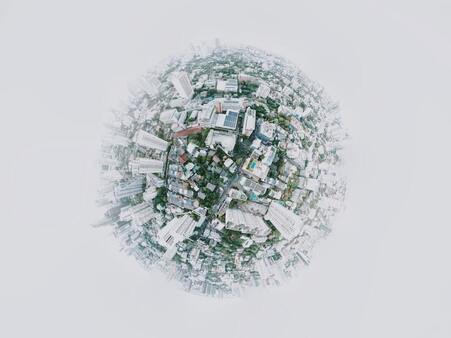 How’s your creative energy these days? Mine is in the tank. I hear that’s going around. The guitar I bought last summer has not been touched in months. I have little bandwidth for reading. I cook the same rotation of things for dinner pretty much every couple of weeks. Playing with my kids? Forget about it. (An as-yet unnamed grief for me in pandemic times is that I started it with two kids, but will emerge on the far side of it with two tweens/almost teenagers. Like all of us, they have grown up fast this year.) I spend time with them, yes. But anything that could be construed as creative ‘play’ has mostly left the building. Not only are they on the verge of being too big for such things-- I just don’t have it in me to pretend things these days. That part of my brain is off the clock. As for writing-- I’ve tried explaining to friends and fam why I have chronic writers block when, in theory, I should have all the time in the world to write. I have no travel, no daily commute, no social engagements, no evenings and weekends spent running kids to endless activities, and few of the errands that can consume us in normal times. I’ve been stumped. It makes easy sense, at some levels. I read somewhere that the part of our brains usually devoted to creativity is now devoted to processing endless changes to our ‘normal,’ facing a relentless string of daily decisions in this new reality, and, you know, staying alive during a global pandemic. Not to mention that the 4 people in this house are almost always in this house. One of them frequently banging on drums. So there’s that. Still. I look around my house and think to myself: I’m always HERE, why can I not spend a few hours a day doing this thing I love? And then it occurred to me-- I’m always HERE. But what I write about is OUT THERE. Just as I dearly love to read a book that has a strong sense of place, I also write with a sense of place. Both content and form are shaped by my physical location, in more ways than one. It is, in part, about geography: I am a different writer in one landscape than I am in another. When I lived in Arizona, the desert itself found its way into my voice, in some ways that stayed with me and some ways that I lost when I left. Living in Kansas, I never really connected with the Midwest scenery in the same way; but what I wrote was still profoundly shaped by the people around me and the community where I lived. Beyond that, I had physical spaces in which to write. A favorite coffee shop, a favorite bar, a favorite corner of the library.... I had quiet places, and places with a low hum of activity. Even when I was not writing, I was places- church, the gym, my kids’ school, people’s homes, hospitals, bars and restaurants, my daughter’s dance studio, my son’s baseball practice… Our days were an endless cascade of nouns! People and places everywhere. I may not have been writing about the places, but I was writing from them. When we moved back to Kentucky, I was back to the climate, geography and culture that I knew in my bones. But working from home, I had to try a little harder to be out among the folks. I found a favorite coffee shop, a favorite corner of the library. A place to sit at church while I was waiting for the kids to be done with an activity. A two hour window of time to myself every Saturday while my daughter did her theater thing. And, of course, there was travel. Lots of it. Over the course of a decade, from this litany of locations, I wrote two books, hundreds of sermons, and nearly a thousand blog posts. Who knew there were so many words in the world? And now I am always… well, HERE. I know what a privilege it is to be able to work from home, to be fairly sequestered in this place to stay healthy and keep others safe as well. I also know that this is all temporary. In the meantime, it helps my spirit tremendously to be able to name why we struggle to find creative space --when much of our lives are situated in a single place. Despite my recent lack of focus, I did recently finish reading News of the World, by Paulette Giles. I saw the movie trailer, and well, you had me at Tom Hanks. Being a strong believer in finishing the book before starting the movie, I powered through the whole thing. I’m a sucker for a good Western anyway, but this one just resonated deeply. The story itself is a great one, but more than that, I loved the landscape and the premise. In the post Civil War frontier of northern Texas, Captain Jefferson Kyle Kid travels from one small town to another, and he reads people the news. He curates selections from multiple publications, and people pay to come hear him read these stories. It’s a great reminder that, well before the days of the 24-hour news cycle, the globalization of everything, and tiny devices that put the whole world at our fingertips, people-- many of whom could not read, and would never travel beyond their own county line-- craved a glimpse of the outside world. To hear those stories was an escape, yes, but it was something else. A connection to something much bigger, in a world that must have felt very small. These days, our worlds have gotten very small again. And in many ways, that’s not entirely a bad thing. But something primal remains in our being that wants to be part of a bigger story. So just know, when you have trouble creating in your own space--which is likely the single space in which much of your life takes place these days-- that the longing for the story is, itself, the spark or creation. It is often drawn out by the people and places you orbit. But the essence remains, even when your orbit gets much smaller. I have no magic formula for drawing out that creativity when time and space is acting against it. But remember that whether you are struggling to play your music, or paint your picture, or bake your masterpiece, or play cowboys with the kids and their stuffed animals... that story is still there, and will be called out in its time. The same creative energy that formed the world--that separated light from darkness and called up life from the depths of the earth-- it still moves, and moves in you. However quietly it might be stirring at the moment. I will keep trying to write small things from the small world I inhabit these days. I will write about bread, and winter, and things that give us life while so much of it is standing still. I will write from memories of the desert, and long roads that used to call to me regularly, and are still out there somewhere. I will write about the people in my small orbit, and the news from this small corner of the world. How about you? What are you creating these days? Or what is creating space in you? 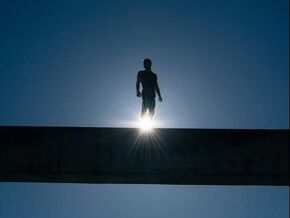 Whether we are team Marvel or DC; Jedi or Enterprise; Potter or Percy Jackson, we all have our favorite hero stories. And don't get me wrong, I love them too. These stories, and the worlds in which they take place, are filled with joy, hope, and glimpses of the extraordinary. But for us everyday mortals, the love of the extraordinary can be a problem. You’ve probably seen the story going around about the high school principal in South Carolina who works the night shift at Wal-Mart, donating his paycheck to students and families in need. This story has gone viral, and is billed as a ‘feel good’ feature in the newsfeeds. But I find way too much about the backdrop of this story troubling to feel good about it. That is not to diminish in any way the incredible kindness and sacrifice of this dedicated educator. I’m just concerned about how readily we laud such individual acts of mercy, without questioning the corporate realities that make such acts necessary. We celebrate a man who will jump into a chasm of need-- but we don’t jump to close the chasm. Furthermore, we celebrate the employer for donating $50,000 to the local high school; without acknowledging that employer’s role in creating the chasm in the first place. The reality is that a company with the reach and resources of Wal-Mart could help create meaningful solutions to complex social issues if they wanted to… but they don’t. For starters, as a baseline minimum, they could pay their employees a living wage and interrupt the cycles of poverty. But they don’t. Another layer of reality here is that educators like Principal Darby are, themselves, underpaid. Because we (the collective “we,” and the representatives we elect) have systematically defunded public education for decades. This means not only that our educators are not valued as they should be; it means, also, that generations of adults are not equipped with the tools they need to be successful in this economy so fraught with chasms. In such an economy, we are eager to celebrate a wealthy philanthropist for donating a million dollars. Which is the equivalent of you or me throwing some change in the [insert local cause] jar at the Circle K. Is our heart in the right place when we drop those dimes? Sure. Did it truly cost us anything to make that donation? Not really. We marvel at the benevolence of billionaires. But we don’t ask that billionaire to look into the chasm--that growing divide where a few at the top of the food chain have more and more power, while untold millions go hungry. We scarcely want to look into that chasm ourselves. It feels better, of course it does, to read the feel good stories. Seeking emotional satisfaction over economic reformation, we put band-aids on amputation sites. We are led to build more temporary shelters and emergency relief programs instead of seeking lasting solutions to poverty. We value individual acts of mercy over communal acts of justice. I have a theory that this dynamic is related to the American bootstraps narrative, that toxic fairy tale that everyone has the same chances, and begins at the same starting line… and if we just work hard enough, we, too, will find our fortune. Those who live in need must be somehow lacking in their effort or worthiness, right? Meanwhile, the (diminishing number of) middle class folks emerge as the heroes of our own stories. In the spinning of this particular tale, we don’t just seek a savior; we also want to be one. At the personal/individual level, of course. Where this gets messy is… well, if the bootstraps narrative were real, we wouldn’t need heroes at all. Everyone would have enough, and we could go about practicing individual kindnesses without the need for radical social transformation. It’s complicated. What I know is that people like Mr. Darby, and anyone else who works and lives and gives to make their communities a better place, should be celebrated. That isn’t the problem. The problem is, we cannot “feel good” about these individual acts of mercy without also questioning the world in which such needs arise. In so many ways, it is a world of our own making. The more we idolize wealth and individualism, the more we elevate the wealthy; and in turn, subjugate the poor. It is no surprised that our dubious values system has elevated leaders who are, themselves, corrupted by wealth, and govern only in the interest of the wealthy. This unbalanced world we have built, by extension, is a world that only we can change. In that regard, then yes, I guess we do need heroes. And what do all of our favorite hero stories have in common? Our heroes learn that they are nothing alone. Their "bootstraps," or any other special powers that they have, are almost always an illusion of sorts. They need a tribe, a team, a league, an order, to do any sort of meaningful good. Sure, one alone can save a kid from a burning building, neat trick. But to keep the whole city from burning--to save the ship, to stop the bomb, to push back the forces of darkness-- they need each other. As we continue to recognize and celebrate individual acts of kindness, we should also be watching and supporting those who work for meaningful justice. Organizers working to raise the minimum wage; community leaders working to address systemic racial injustice, particularly in our education and criminal justice systems; educators fighting for the very concept of true ‘public’ education; scientists working against the clock to protect the environment; and many of you who are marching, writing, calling, gathering, and doing whatever it takes to bring about change at your local level. Wherever you are, find the folks close to home who are digging deeper, and then go put yourself in that story. Heroes don’t ignore the chasm. They face it-- and then they jump in. |
Archives
March 2023
Categories
All
|
